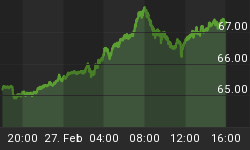Those unfamiliar with marketplace dynamics may not recognize how government activity has created price distortions across our economy. But when these chains fail to restrain the market, the underlying forces become easier to see.
Much as government mandated easy credit propelled home prices to bubble levels, similar forces pushed college tuitions up to the stratosphere. Both systems are currently breaking down along similar lines.
In light of the staggering cost of college education today, it may seem unbelievable that my father in the early 1950s was able to finance his own education with a summer job waiting tables. Like most in his generation, eight weeks of work per year allowed him to graduate debt free. In contrast, the debt burden now heaped on today's college graduates is so oppressive that the financial challenges are becoming a palpable psychological strain on an entire generation.
The irony is that without easy access to student loans, which have been touted as a means to ease college affordability, tuitions never could have risen so high in the first place. Sadly, it is not students who have benefited, but the educational establishment that receives the proceeds. Colleges collect huge sums of money up front while students get saddled with staggering balances.
Now that repaying loans has become increasingly difficult for home buyers and students (especially since the home equity well has run dry and the employment market has cooled), more debtors are defaulting. As a result, the market for securitized loans, which has completely dried up in the mortgage market, is now equally desolate for student loans. Here again, the government is being asked to pick up the slack by buying existing student loans and issuing new loans directly to students.
In so doing, the government is helping to sustain high tuitions just as similar actions are working to prop up real estate prices. If the government stayed out of the student loan market, students would not be denied educations. Colleges and universities would simply be forced to offer affordable tuitions or go out of business --just the way they used to back in my father's day. Similarly, if the government allowed real estate prices to collapse, Americans would not have to take on so much debt to buy houses.
To buy up all of these loans, the Fed is running the printing presses non-stop. As a result, prices of other goods, such as food and energy, are spiraling out of control.
Of course, mainstream Wall Street firms and the conventional financial media do not see this obvious connection. While CNBC searches the world for clues to this "mystery", no one sees the evidence "hiding" in plain sight. Higher prices simply result from all the money printing, both by the Fed and foreign central banks trying to maintain currency pegs to a sinking dollar.
It is amazing how those who were completely blindsided by the surge in food prices are now so quick to come up with ridiculous reasons to explain the phenomenon. However, for those of us who actually understand what inflation is, predicting the current surge in food prices was a no brainer. Read one of my commentaries from Oct. of 2006 and see for yourself.
Similarly, analysts are blaming $120 oil on the hidden machinations of greedy speculators. They buttress these claims by noting that absent a bona fide oil shortage, current prices are not justified by fundamentals. This overlooks that while there is no shortage, there is also no surplus. The market is in perfect equilibrium at today's price, and recent spikes merely reflect the substantial increase in global money supply. If today's prices really were artificially high, like house prices, they would be a glut of oil in storage facilities while users, priced out of an inflated market, cut back on their consumption (This is precisely what is happening in the real estate market).
As consumers are getting wise to inflation, they are beginning to stock up on those products showing the most rapid price increases. This week, Cosco and Sam's Club began to limit bulk purchases of rice. After all, if you have the cash why not by the things you know you will need in the future now, before the prices go any higher. My guess is that if home storage were possible, consumers would be buying as much gasoline and home heating oil as they could currently afford...they might even load up their credit cards to do so. After airfares (which unfortunately cannot be stockpiled), apparel may be next major category of goods that will experience rapid price increases. Why not buy a few extra pairs of socks while they are still cheap?
As the government creates more inflation, and prices for all sorts of consumer goods spiral upward, the authorities, as they always have, will institute price controls and other forms of rationing of consumer staples. My advice is to stock up now, before you end up having to spend hours waiting in line.
For a more in depth analysis of our financial problems and the inherent dangers they pose for the U.S. economy and U.S. dollar denominated investments, read my new book "Crash Proof: How to Profit from the Coming Economic Collapse." Click here to order a copy today.
More importantly, don't wait for reality to set in. Protect your wealth and preserve your purchasing power before it's too late. Discover the best way to buy gold at www.goldyoucanfold.com, download my free research report on the powerful case for investing in foreign equities available at www.researchreportone.com, and subscribe to my free, on-line investment newsletter at http://www.europac.net/newsletter/newsletter.asp.















